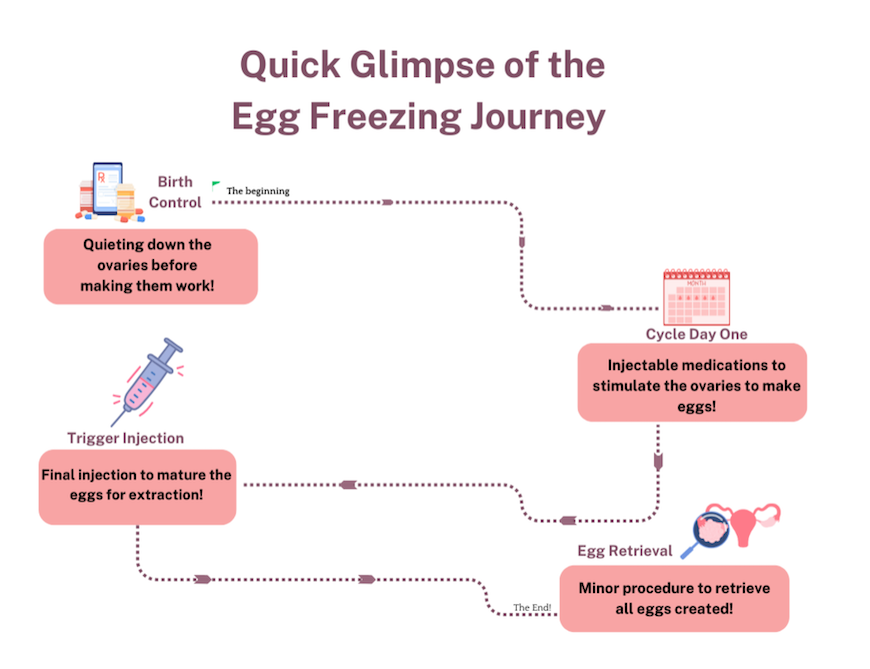Preserve Your Options with Egg Freezing
What is Egg Freezing?
Egg freezing, also known as oocyte cryopreservation, is the process in which eggs are harvested, frozen and stored for later use. As women age, fertility levels naturally decline. Egg freezing allows women to preserve their fertility.
Our special Egg Freezing Visits Includes:
- New Patient Consult
- Ultrasound
- Egg Freezing Consult-Follow up
- OC Monitoring
- Blood Work
- Cycle Coordination and Management
Egg Freezing: The Steps
Step 1: Ovarian Stimulation
Normally, a woman produces one egg during her monthly menstrual cycle. Prior to egg freezing, the patient takes injectable fertility medication that stimulates the ovaries so they produce multiple eggs.
Step 2: Retrieval of Eggs
When eggs are ready, a trigger injection is provided to mature the eggs. To retrieve the eggs, an outpatient procedure is performed. Through transvaginal ultrasound guidance, the physician can view the follicles on the patient’s ovary that contain the eggs and safely remove the fluid they contain.
Step 3: Freezing
Once the unfertilized eggs are harvested, they are cooled to subzero temperatures and preserved.
Step 4: After The Procedure
Patients may experience some cramping following the procedure as the ovaries will still be enlarged. Within a day or so, most patients can continue their normal activities.
Schedule an Appointment
RSC Events
FAQs




